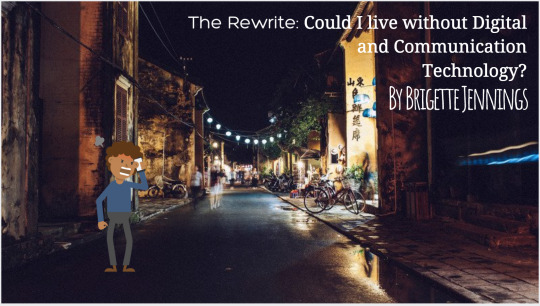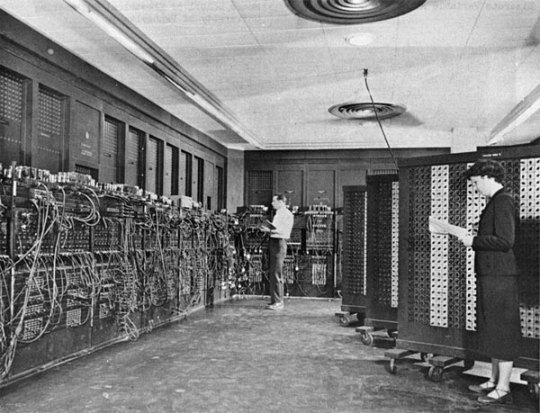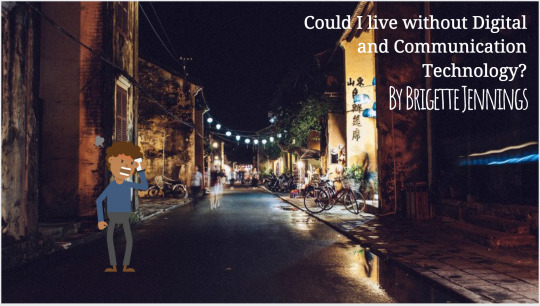Welcome to The Reflecting Turtle! My name is Brigette and I am a pre-service primary teacher. When I'm not at uni, I'm running kids sport parties, playing tennis, dancing or reading. I am a dog lover and have a German Shepherd that is very hyperactive. Throughout my blog posts I will be reflecting on a bunch of topics about technology, including how it impacts our lives and the lives of children, and ethical issues that come up in the world as we all continue to learn how to use (or abuse) this online space we have created. All work on this blog is my own unless referenced.
Don't wanna be here? Send us removal request.
Text
Blog Post 1: The Rewrite!

Could I live without Digital and Communication Technologies?
In this week’s blog post I will be discussing the week 1 driving question, about whether or not I believe I could live without Digital and Communication Technologies. Throughout the lecture and tutorial for week 1, we mainly had an introduction to the course, learnt about what the assignments will be, and what is expected of us as students in completing the course. However, in the tutorial we were asked to ponder the question “could you live without digital and communication technologies?”
Before I start saying more on the topic, I feel like it would be useful to specify what “digital and communication technologies” really means. My tutorial class defined it as multiple things, the ones that stood out being; a way to communicate with people from all around the world, an online community, and pieces of technology that are used in our day to day lives.
During this class we learnt about the phrase “Digital Natives” (Prensky, 2001) and what it means. Prensky defines it as people, especially students, who have “spent their entire lives surrounded by and using computers, videogames, digital music players, video cams, cell phones, and all other toys and tools of the digital age” (2001). Most of the class realised that we would fall into this category, myself included. I know personally, that although I have always done lots of sport and had younger sisters to play with for most of my life, my family has always had a TV, a phone and even one of those huge box-like computers that my sisters and I could never quite figure out. Although most people were certain that they would be able to live without digital and communication technologies, the more we discussed it and thought about it, the more we realised how often we really use technology in our day to day lives. This realisation has made me think about whether or not I would actually be able to live without digital and communication technologies if, in fact, I have never known a world without it. And although I would like to think that I would be able to survive easily, the reality is, I would not.

Until next time,
Brigette
References:
Marc Prensky, (2001) "Digital Natives, Digital Immigrants Part 1", On the Horizon, Vol. 9 Issue: 5, pp.1-6, https:// doi.org/10.1108/10748120110424816
0 notes
Text
Feedback
Hi Brigette,
Good blog post on discussing whether or not you could live without digital and communication technology. I love the image you created which allows the audience to think about a time before technology was so central in our lives. It was also great how you referred to our discussions in the tutorial and how it progressed. To further enhance your discussion it would be interesting to hear if you’ve had experiences where technology has perhaps “saved” you. Also don’t forget to include a reference list. Look forward to reading more interesting posts!!
Kind Regards,
Tiana Karlusic
0 notes
Text
Feedback
Hi Brigette,
In relation to your first blog post ‘Could I live without digital and communication technologies,’ I really enjoyed your discussion. I liked how you defined digital technologies prior to your discussion to ensure your audience was aware and had full knowledge of what you were talking about. I liked your personal story, I think it will have helped your audience connect with you rather than just simply stating facts about digital technology, thus your personal connection was great. I think you could have spent more time talking about digital natives. I feel as if the definition was just slotted into the end where as a more thorough and in-depth discussion could have enhanced your blog post. Overall, you provided an informative and enjoyable blog post in regards to digital communications and technology, but I feel as though you could have incorporated a more in-depth discussion about digital natives.
- Brooke
0 notes
Text
Blog 3 - An understanding of how changes in technology impact on the way humans communicate, and the ethical issues that surround these changes
Blog post number 3! Throughout this post I will be discussing how technology has changed and the impact it has on people, both good and bad.

Since the first huge computer, to the newest Apple iPhone, technology has been constantly changing around us, and will continue to do so. The great thing about technology is that it is always able to be changed and improved, the only limit is our imagination. Humans use technology for many things nowadays, usually as a way to make things easier and less physically demanding. Cooking can be made easier by the use of an oven, a microwave, a blender. Cleaning can be made easier by using vacuums, or even better, robot vacuums that you don’t even need to physically move yourself!
Although there are many great and useful things about technology, there are also many harmful things. Social media, for example, can be used by anyone around the world to contact friends and family, post photos, statuses, follow celebrities, and much more, however, it can also mean that people can pretend to be someone they’re not. Adults can lure and harm unsuspecting children, who might have also lied about their age in order to be on social media. Falsifying of age, cyberbullying, stolen identity. These are just some of the harmful things that can come from the use of technology. Currently, the law cannot do much when it comes to things such as cyberbullying. Privacy laws only cover so much, and sadly, especially for children and teenagers, it does not cover enough. There are many foundations, such as Dolly’s Dream Foundation, Beyond Blue and Headspace, that have been set up to combat cyberbullying. Although these foundations do their best, it is not always enough and if technology continues to change and grow like it has in the past 20 years, we need to find a solution for problems like this that will inevitably arise.
0 notes
Text
Blog 2 - Do I really need to become a reflective practitioner?
Welcome to my second blog post! This week’s question is “Do I really need to become a reflective practitioner?” Through this week we spoke about how and why we should become reflective practitioners. In the lecture we were told about the four levels of reflection; habitual action, understanding, reflection, and critical reflection (D. Kember, J. McKay, K. Sinclair, F. Kam Yuet Wong, 2008).
To be a reflective practitioner you must follow the process of reflective thinking. It involves self-awareness (the what), critical analysis (why, how, what if), synthesis (what is the significance for you, how does it change your ideas or give new insights), and evaluation (what does it mean for your future practice, what was learnt).
Initially, my opinion of this topic was that everyone should do this, however doing it to the extent that we were being told was a bit excessive. As I learnt more about this topic however, I realised that in order to get the best results, especially when I get to teach children in a classroom, I must be able to be a reflective practitioner and follow the steps we were taught in the lecture. By using these skills I will be able to address any problems that arise, before they become a bigger problem than they should be.
There are many ways to do reflective thinking, some of my personal favourites include: blogging, tweeting, mind maps, evaluations, and sometimes even drawing if I can’t find the words to describe something.
That’s all for this week, see you next time for some blogging fun!

References:
David Kember, Jan McKay, Kit Sinclair & Frances Kam Yuet Wong (2008) A four‐category scheme for coding and assessing the level of reflection in written work, Assessment & Evaluation in Higher Education, 33:4, 369-379, DOI: 10.1080/02602930701293355
0 notes
Text
Blog 1 - Could I live without Digital and Communication Technologies?

In this week’s blog post I will be discussing the week 1 driving question, about whether or not I believe I could live without Digital and Communication Technologies. Throughout the lecture and tutorial for week 1, we mainly had an introduction to the course, learnt about what the assignments will be, and what is expected of us as students in completing the course. However, in the tutorial we were asked the question “could you live without digital and communication technologies?”
Before I start saying more on the topic, I feel like it would be useful to specify what “digital and communication technologies” really means. My tutorial class defined it as multiple things, the ones that stood out being; a way to communicate with people from all around the world, an online community, and pieces of technology that are used in our day to day lives.
As a whole, my tutorial class were certain that we would be able to live without digital and communication technologies, however as we discussed this more, we realised that most of us barely remember a time where we have not been surrounded by some kind of technology allowing us to communicate with the wider world. I know personally, that although I have always done lots of sport and had younger sisters to play with for most of my life, my family has always had a TV, phone and even one of those huge box-like computers that my sisters and I could never quite figure out. We would nowadays be described as “Digital Natives” (Prensky, 2001), and it is true. Although I’d like to believe that I could live without digital and communication technologies, unless I was forced, I don’t believe that experience would go down very well.

Until next time,
Brigette
0 notes